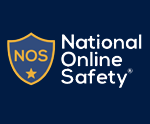Online Safety
Online safety is central to our Computing curriculum at Coldean. We have extensive security measures in place to prevent our pupils from coming into any potential danger or accessing unsuitable materials including access to social media sites, whilst on-site.
However staying safe online is as much about personal behaviours as it is about technological safeguards.
- Pupils are taught how to stay safe online and how to use online devices safely specifically from Year 1 onwards.
- Our Computing Scheme of Work places online safety at its core.
- All pupils agree to a set of rules, called an Acceptable Use Policy, before they can use the school's PCs/ mobile devices.
- These rules are displayed around school and regularly discussed with pupils.
- We are part of the eCadet programme, whereby each KS2 class has an eCadet who is trained to deliver lessons on online safety.
- Online safety is specifically referred to in our Behaviour Management Policy.
- You can enrol in the National Online Safety programme, which provides training and resources for staff, parents and children in all aspects of online safety.
Parents/Carers play an equally important part in supporting this learning outside of school. Below are links to some digital resources that we use in lessons that may prove helpful in understanding some of the issues and ways you and your children can stay safe online.
|
National Online Safety is a comprehensive online safety platform for staff, parents and children. Click above for access to help guides. |
Parent Info provide expert information to help children and young people stay safe online, for schools to host on their own websites. |
UK Safer Internet Centre provides advice and support to children and young people, parents and carers, schools and the children's workforce. |
ThinkUKnow has excellent advice for parents/carers including how to report online abuse or concerns. |
Here are some other useful links to below:
Child Safety Online: A practical guide for parents and carers whose children are using social media
Do you know what your child is up to on social media?
The answer is they should be doing very little as many social media companies recommend you are at least 13 years old before you create an account. Creating an account with false information is a violation of their terms. This includes accounts registered on the behalf of someone under 13. As a school we agree with these guidelines and advise parents and carers to do so as well.
If parents choose to allow their children to access social media it is important they are aware of the terms and laws surrounding these cyber networks.
Trolling
‘Trolling’ (also known as cyber-bullying or online-bullying) is the anti-social act of causing personal conflict and controversy online. Trolling is recognised as deliberately inflicting hatred, bigotry, racism, or just simple bickering between others. People who partake in ‘trolling’ are known as ‘trolls’ and they use any environment where they are allowed to make public comments, such as blog sites, social networks (like Facebook® and Twitter®), news sites, discussion forums, and game chat.
Trolling is an offence
Persons engaging in Internet trolling are immediately committing an offence under the Malicious Communications Act. The Malicious Communications Act states:
- Any person who sends a letter, electronic communication or article of any description to a person that conveys a message that is indecent or highly offensive, a threat or false information. If the reason for that communication was to cause distress or anxiety to the recipient or to any other person, then the sender is guilty of an offence.
- This includes mobile phones and the Internet (any form of electronic communication).
- The offence occurs whether those targeted actually receive the message or not.
All social media sites have systems in place to report ‘trolling’ directly to the company.
To find out more about ‘trolling’ and how to protect your child online check out the following website
https://www.herts.police.uk/Information-and-services/Advice/Online-safety/Trolling-and-cyberbullying
If you decide to allow your child to use social media please ensure that you monitor what your child is doing.





















